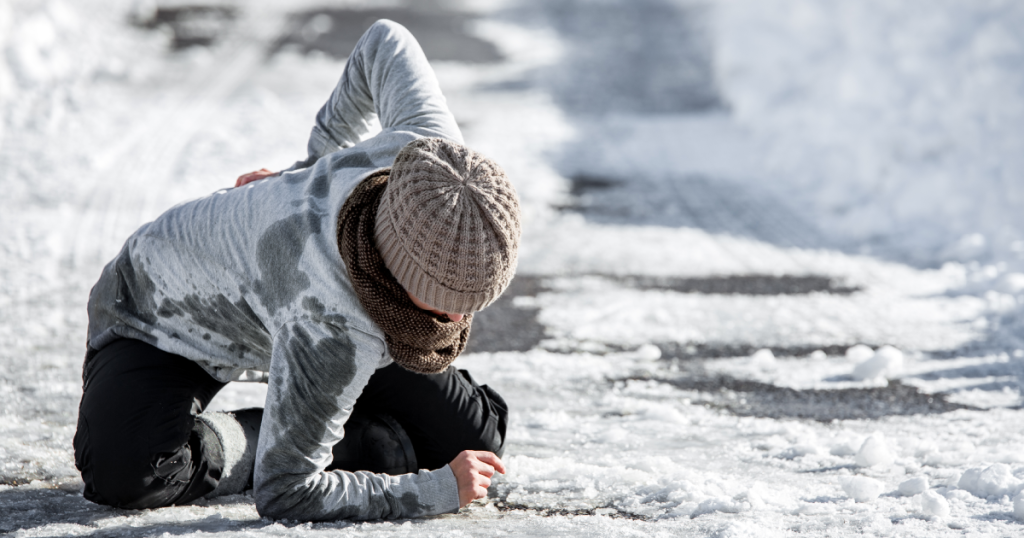Idaho’s winters are hazardous for anyone trying to cross a parking lot or walk down a sidewalk. Both snow and ice can accumulate, and even a little accumulation proves dangerous for most of us, who can easily slip and fall.
After an accident, you are probably interested in finding out if you can sue. The good news is that both snow and ice are dangerous conditions that might render a property owner liable for an accident. However, there are exceptions, and everything depends on the particular facts of your case. Contact a Boise, Idaho slip and fall attorney at Litster Frost today.
Landlords Have a Duty to Use Reasonable Care in Idaho
Once upon a time, Idaho courts held that property owners were not responsible for the natural accumulation of snow and ice. This rule allowed landlords to get away with having very dangerous parking lots and sidewalks outside their stores. Many pedestrians were injured because they could not sue a property owner so long as the owner did not create the hazard.
Today, however, the Idaho Supreme Court has had a change of heart. As explained in Ball v. City of Blackfoot, property owners and those in possession of the property must use “reasonable care” when dealing with all slippery surfaces, including those caused by ice or snow. Claiming that the snow naturally accumulated is not a defense.
What does that mean? Speaking generally, store owners and other defendants will need to:
- Avoid plowing snow in such a way that it accumulates on sidewalks or pedestrian paths
- Apply ice melt or sand to provide traction for pedestrians
- Provide warning to customers of icy conditions
- Take other reasonable steps in light of the circumstances
Each Slip & Fall Case is Different
Although defendants now have a duty to address snow and ice, that doesn’t mean you automatically have a legal claim if you slip and fall. Instead, we must look at the circumstances surrounding your accident and determine if the defendant’s actions were reasonable.
For example, you might have been out walking during a snowstorm. When the storm is in progress, a property owner doesn’t yet have time to shovel or apply ice melt. In most cases, a court will give the defendant a reasonable amount of time to properly address dangerous conditions created by a blizzard.
In other situations, a defendant might not know of snow or ice accumulation. For example, a pipe could burst in a neighboring building and spill onto the sidewalk in front of a pharmacy, where it quickly forms ice in sub-zero weather. If the pharmacist didn’t know of the burst pipe, they can’t immediately address it, so they might not be liable if you slip. However, if they had noticed—or if the ice had existed for a very long time—then you might be able to sue if they did not apply ice melt.
Contact Litster Frost Injury Lawyers to Learn More
Our Boise, Idaho slip and fall attorneys are eager to help anyone who is hurt when traversing a slippery parking lot or sidewalk. Give us a call to schedule a free consultation.



